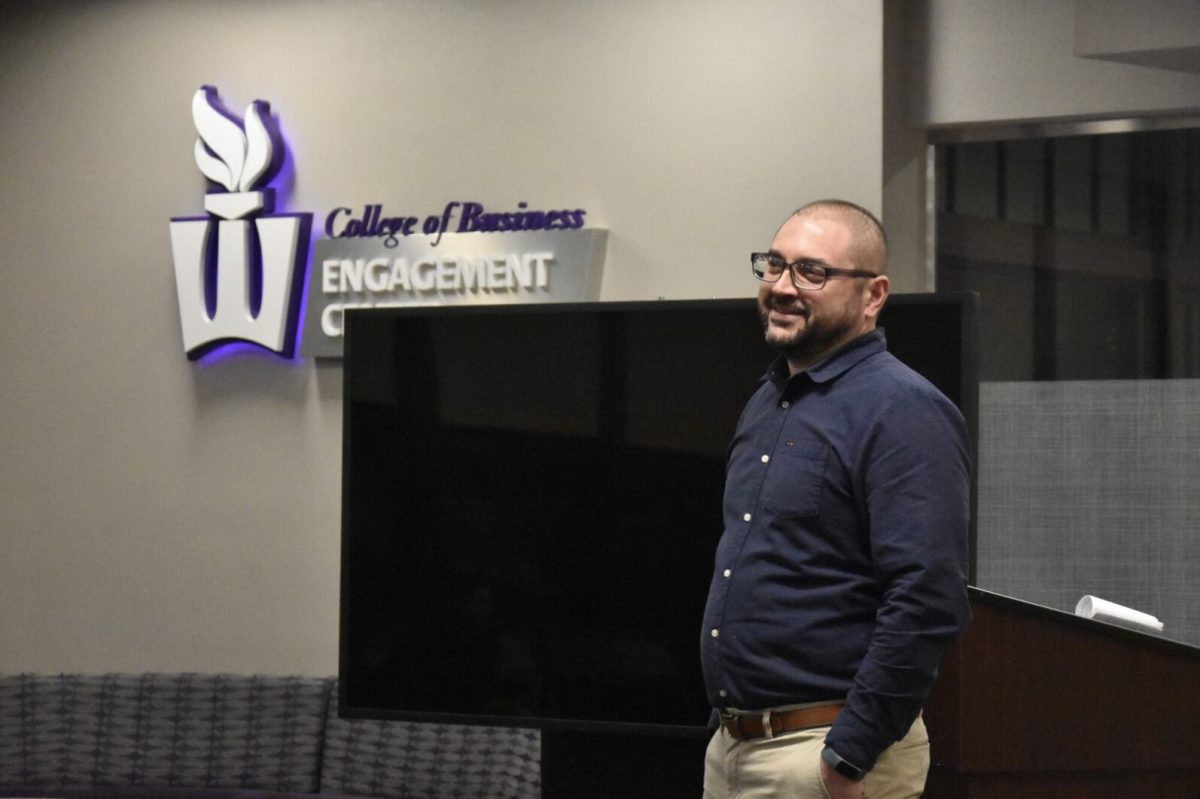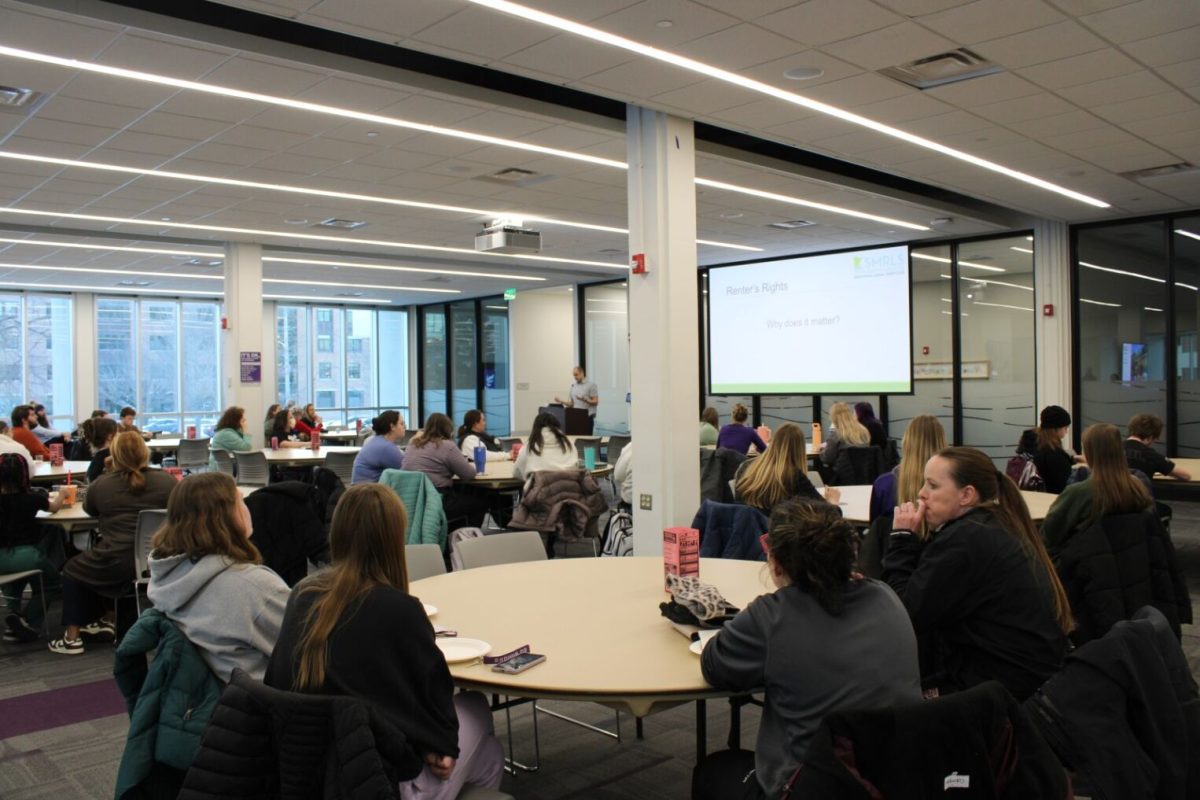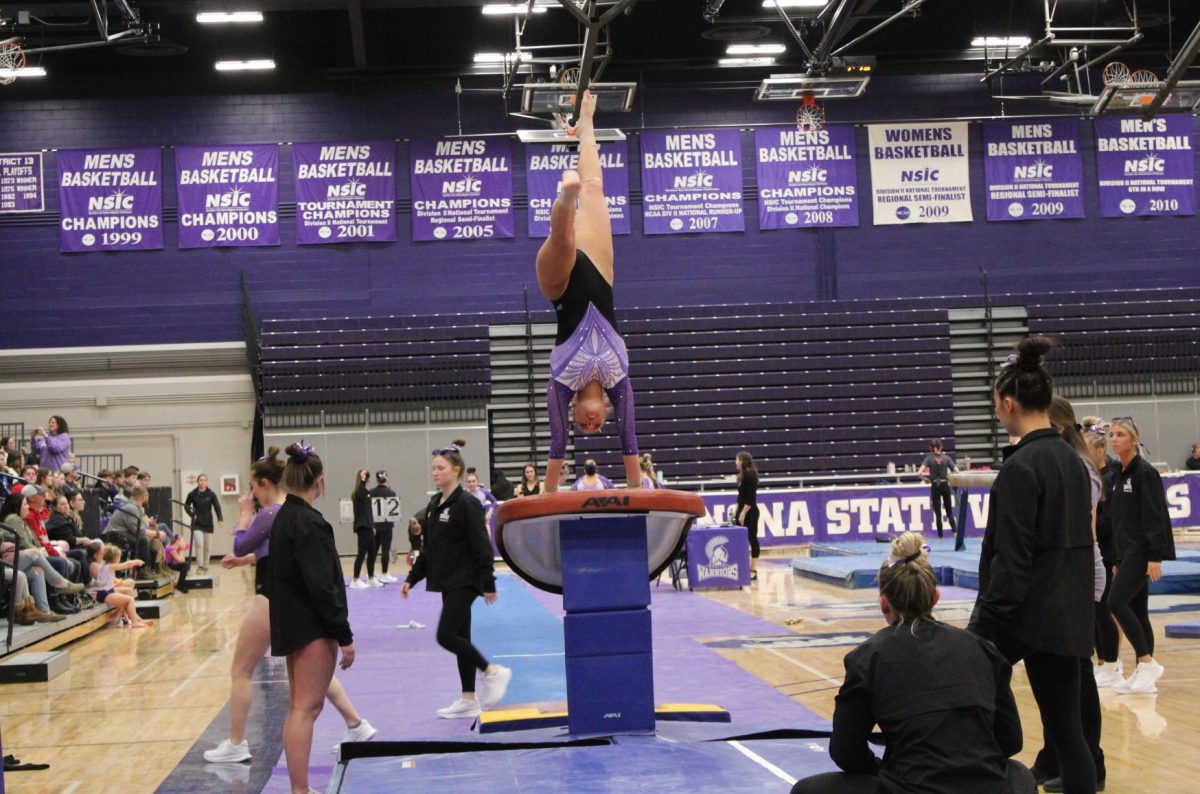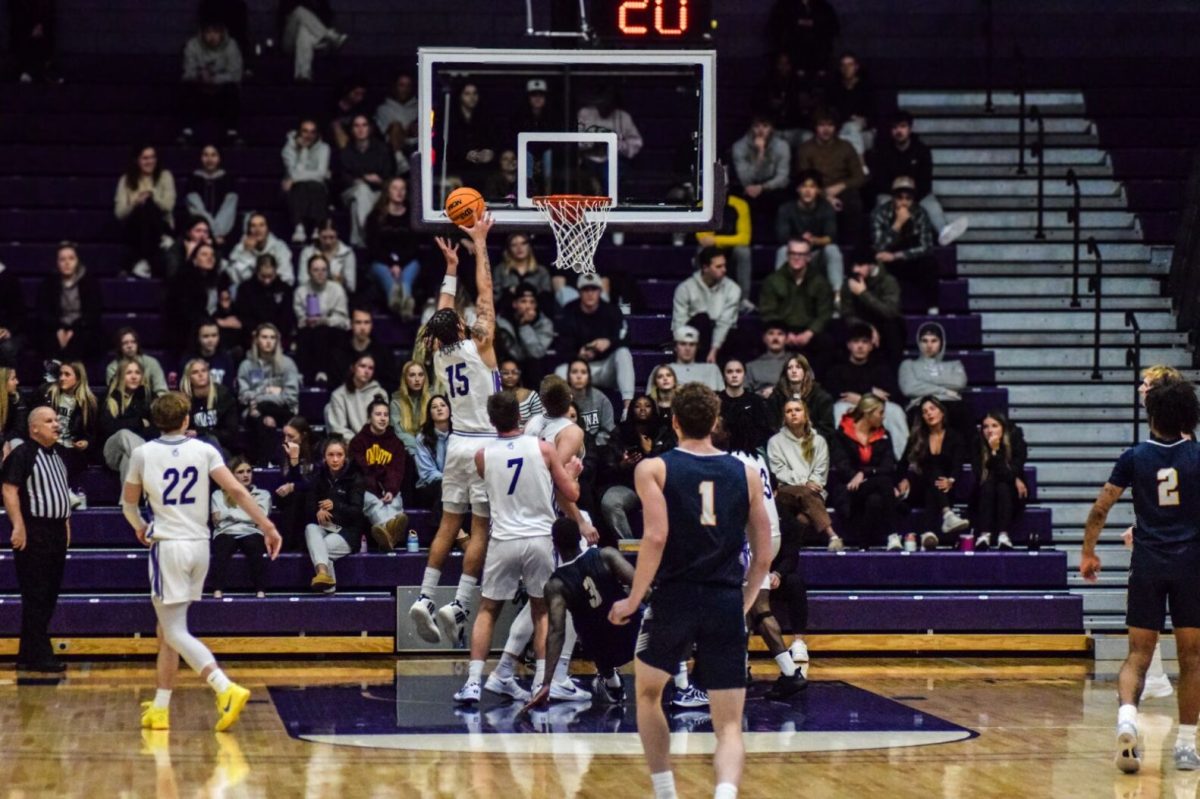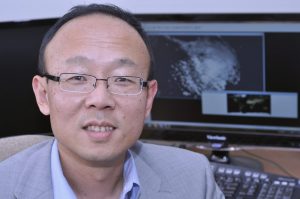
Elisenda XifraReverter/Winonan
Danielle Stone/Winonan
A computer science professor at Winona State University recently received the Undergraduate Research Mentoring Award through the National Center for Women and Information Technology for his work with undergraduate students.
Mingrui Zhang has been a professor at Winona State for 13 years. In that time, he has been involved in many different projects and provided students with opportunities to learn and gain experience through his work.
Since receiving the award, Zhang has been leading panels about getting other educators involved with undergraduate research.
“I have been working with computer science educators nation-wide and attended a national meeting for computer education in Washington, D.C.,” Zhang said.
He has also been working with a group from the Institute of Electrical and Electronics Engineering and the National Center for Women and Information Technology.
Zhang often has undergraduate students working with him on research projects.
One recent project concerns how to derive the water quality along coastal areas and large lakes.
This research is being done to help prevent harmful algal blooms containing a high density of phytoplankton. The research Zhang and his students are gathering is then used by local agencies to protect water resources.
Another project that Zhang has been working on is to develop a curriculum for computer science and electrical engineering administrated by the Institute of Electrical and Electronics Engineering.
The program he has developed uses image processing algorithms to identify Gulf oil spills to make it easier for engineering students to do research.
Zhang said, “What we did was to simplify the research method for education. Using these programs students can understand how the computer is used in solving real-world problems. In this project, students will develop computer software to outline the boundary of the oil spills.”
Zhang is also working on the Lung Cancer Outcome Project along with undergraduate student Nathan Guggenberger, who joined the project spring semester of last year. The purpose of the project is to predict a patient’s survivability after treatment.
“We developed a program software that takes an input of the patient’s data, runs algorithms, and provides outputs based on the treatment to suggest the chance of a higher survival,” Guggenberger said.
Zhang has been working on the project with Mayo Clinic and the copy of the program being used at WSU is the same as the one being used at Mayo Clinic.
Through his research projects, Zhang hopes to enhance the education of his students by providing opportunities for them to gain experience.
“As an educator, I am very proud of my students when they make achievements. The whole goal of engaging students is to help them to achieve a higher goal and help a student to realize their potential,” he said.
Sometimes students come to Zhang seeking research opportunities. Zhang commented, “If they come, I will say yes.”
That is what Guggenberger did; he asked to work with Zhang on his research.
Guggenberger said, “I have learned so much. In class you can get so many great experiences, but when you work outside of class you get to know your professors on a more personal level and have other opportunities.”
When it comes to working with Zhang, Guggenberger said, “He is always there to help.”
Contact Danielle at DEStone09@winona.edu




